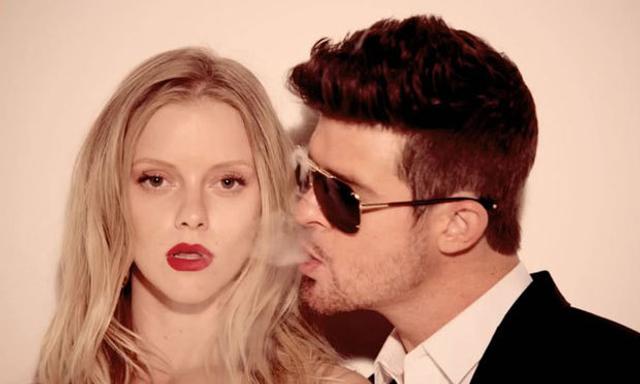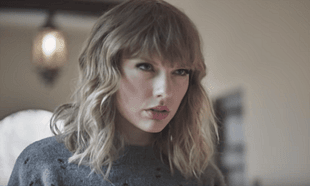Robin Thicke's 'Blurred Lines' has been one of 2013's biggest songs - but also one of the most controversial. The song's detractors claim that its lyrics promote rape culture and misogyny - a charge which Thicke denies - and now, as a result of the criticism, it has become the very first song to be banned by Queen's University Students' Union in its 113 years as an institution.
The student council voted in favour of banning the song by 26 votes to 22, meaning that the song cannot be played in any of the union common areas or outside events. The reasoning behind the motion was to help promote a safe space for students, a central tenet of the Union's constitution, but the Union have now faced criticism from some quarters for a perceived act of censorship.
Unless you've been living under a rock for the past few months you'll be well aware of how 'Blurred Lines' goes. Its refrain of "I know you want it" can certainly be seen as "no doesn't necessarily mean no", an unfortunately popularised sentiment of victim-blaming prevalent in today's society.
The motion to ban the song was proposed by QUBSU vice president of equality and diversity Caoimhe MacNeil and, as evidenced by how closed the vote was, it wasn't an entirely popular idea.
The banning means that 'Blurred Lines' can no longer be played in the QUBSU building, all bar and club venues, Queen's Radio and the various cafes throughout the campus.
Ms MacNeil commented to the Belfast Telegraph, saying: "The Students' Union is committed to the promotion of equality of opportunity, to creating and sustaining an environment that values and celebrates the diversity of all students, and to ensuring that it is a 'safe space' for all of its members. It also serves to increase awareness on campus of the issues that have been raised through the popularity of this song."
Student councillor Cliona McCarney spoke of her disappointment that three male sabbatical offers voted against the motion. "Caoimhe's motion is the first step in making the Queen's University area much safer."
Lily Allen has spoken out against the song too, satirising it in her most recent music video.
What do you think, will banning 'Blurred Lines' help in the fight against misogyny, or is banning the song not the correct decision? Let us know in the comments below.









































































